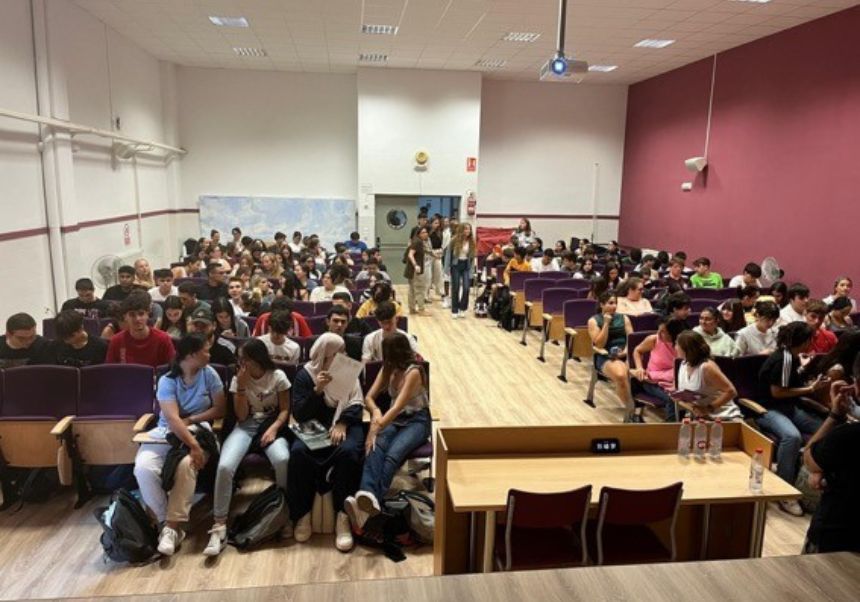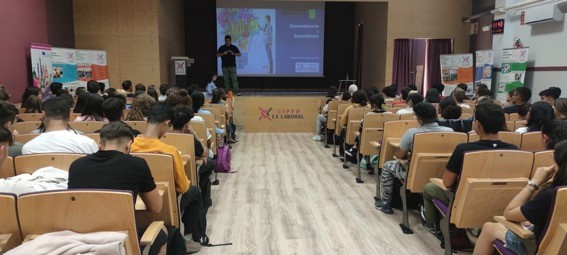
The event took place on 3 October 2024 at the Sagunt Labout Institute.
The Aula Empresocial, run by the Faculty of Law at the Universitat de València, held a new conference on 3 October for upper secondary and vocational training students, as part of the 'Emprenedoria en Economia Social' ('Entrepreneurship for Social Economy') series.
The workshop, which was held in person at the Sagunt Labour Institute, addressed the topic of the Social Economy, differentiating it from other more common economic models in today's world and highlighting its advantages and disadvantages.
Antonia Sajardo, professor of Applied Economics at the Faculty of Law, was in charge of presenting and moderating the workshop, which lasted approximately four hours. In addition to Sajardo, Emili Altur, manager of CEMEF SLU, spoke about sustainability and social entrepreneurship; Helga Figueroa, CEO of Koira Canine Centre, and Diego Albizu, Secretary of Okambuva, spoke about their experiences as workers in companies that are entrepreneurs in the social economy.
The conference, which was funded by the Regional Ministry of Education, Culture, Universities and Employment through ESAFOM aid, was participatory in nature throughout the day, with attendees listening to testimonials from the two entrepreneurs on the application of the social economy in their businesses and taking part in a practical activity in which they assessed the knowledge they had acquired during the lecture.
The social economy promotes the principles of solidarity and cooperation, integrating companies, cooperatives and non-profit organisations that prioritise social and environmental well-being over economic profit. Its importance lies in its ability to foster social inclusion, generate sustainable employment and promote community development.
By focusing on people and the planet, these entities contribute to mitigating inequalities and building a more just and balanced economy. In an increasingly unequal world, the social economy presents itself as an alternative model that prioritises the common good and long-term sustainability.













